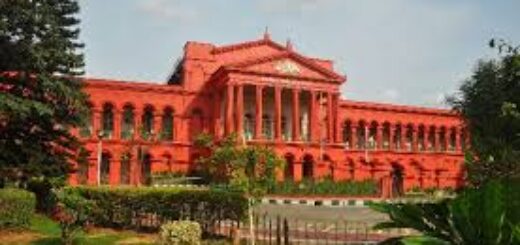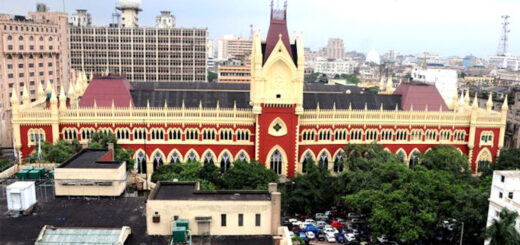The Andhra Pradesh High Court stated that the superintendence power given to it by Article 227 of the Constitution is not limited to just administrative oversight; it also includes the authority for judicial review

This statement came while the Court was reviewing civil revision petitions related to a Family Court’s decision in a money recovery case. Justice Subba Reddy Satti noted that Article 227 grants the High Court supervisory power over all lower courts and tribunals. He emphasized that this power is not only for administrative purposes but also encompasses judicial review. The Court must ensure that lower courts do not exceed their authority or make decisions based on irrelevant information.
In this case, the original suit was initiated by the first respondent against the revision petitioner and others to recover money based on a promissory note allegedly signed by the late Pasala Surya Chandra Rao. During the defendant’s evidence stage, an application was submitted under Section 45 of the Indian Evidence Act, 1872, requesting the promissory note and admitted signatures be sent for comparison by a government handwriting expert. Additionally, another application was filed under Order XVI Rules 1 and 6 and Section 151 of the Code of Civil Procedure, 1908, to summon the Registrar of the Visakhapatnam Registrar Office for the production of a Will. However, the trial court rejected both applications, leading the petitioner to file the current two revision petitions.
Senior Counsel for the Revision Petitioner argued that the written statement claimed the signature of the late Surya Chandra Rao on Ex.A1, the promissory note, is forged, making expert examination necessary. In contrast, the Counsel for Respondents pointed out that during the cross-examination of PWs 1 and 2, they admitted to the execution of the promissory note, and the expert’s opinion supports this. He also noted a significant gap of 15 years since the alleged Will was executed, asserting that the contested orders are unlawful. The key legal question for the Court was whether there was any irregularity by the Trial Court that justified the High Court’s intervention under Article 227 of the Constitution of India.
The Court remarked that an expert’s opinion is not definitive and should not be prioritized. It noted that the Trial Court, in dismissing the applications, recognized that the defendants admitted the execution of Ex.A1 by the late Surya Chandra Rao during questioning. Emphasizing the High Court’s inherent power under Article 227, the Court found no reason to overturn the Trial Court’s decision. “In this case, the Court sees no error or unreasonable use of power by the Trial Court that would justify intervention under Article 227 of the Constitution of India. The Trial Court reviewed all relevant factors and dismissed the applications. Therefore, the revisions lack merit and should be dismissed,” the Court stated. The petitions were dismissed accordingly.
Cause Title: Bande Siva Shankara Srinivasa Prasad vs Ravi Surya Prakash and Others
Appearances:
Petitioners- Advocate T.S. Anand
Respondents- Government Pleader, Senior Advocate Y Srinivasa Murthy and Advocate MV Suresh.









